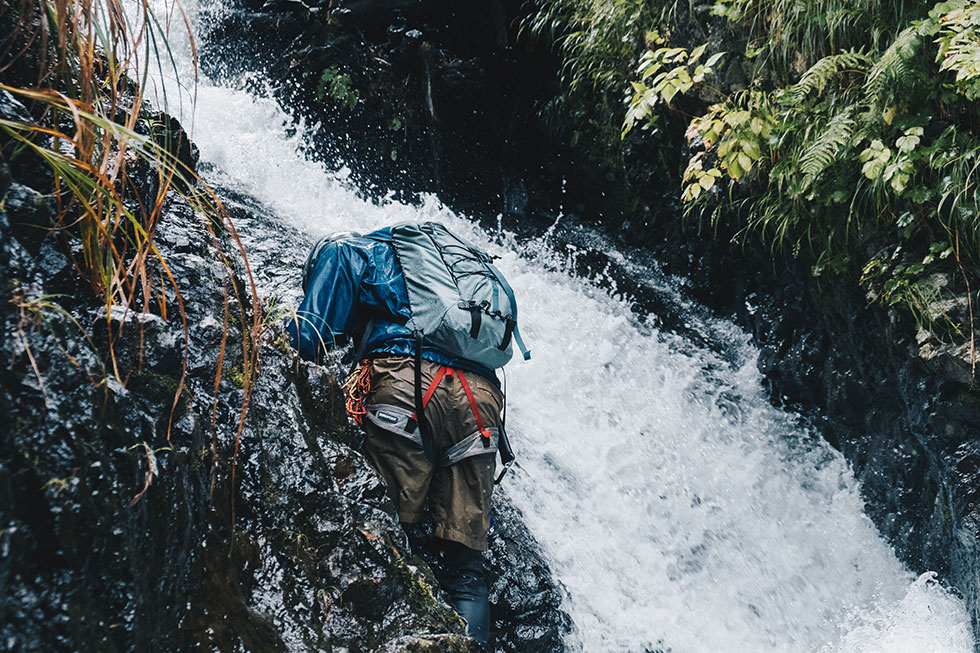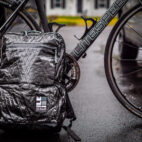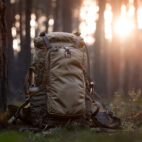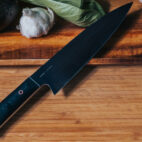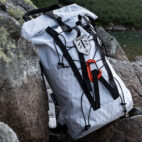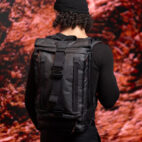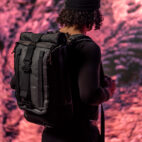
Backpacks
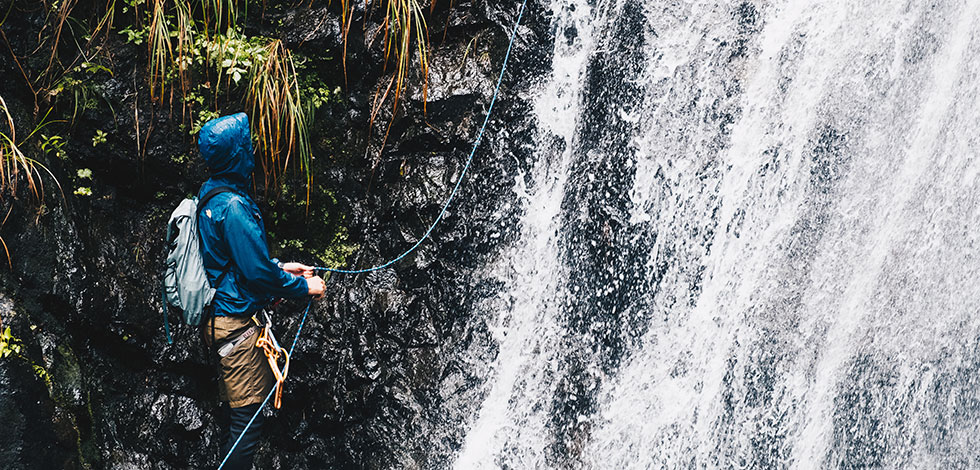
Spending summer on the North Island of Japan, Hokkaido, renowned for a yearly delivery of insane powder snow, I picked up the traditional Japanese sport of “sawanobori,” roughly translated to “shower climbing.” In its purest form, sawanobori follows a river or gorge to the source, moving upstream, oftentimes involving climbing rotten rock and heinous bushbashing near the “peaks.” Everything gets soaked, as climbing or belaying next to or in a waterfall means nothing is safe from the snowmelt and spring water gushing from the rocks. Sometimes in sawanobori, we must swim in from the ocean to access the point at which fresh water hits salt water. I took this as a chance to drag the Arc’teryx Alpha AR 20 (available Spring 2019) through rock, freezing spring water, ocean water, and some of the most pristine rivers in Hokkaido.
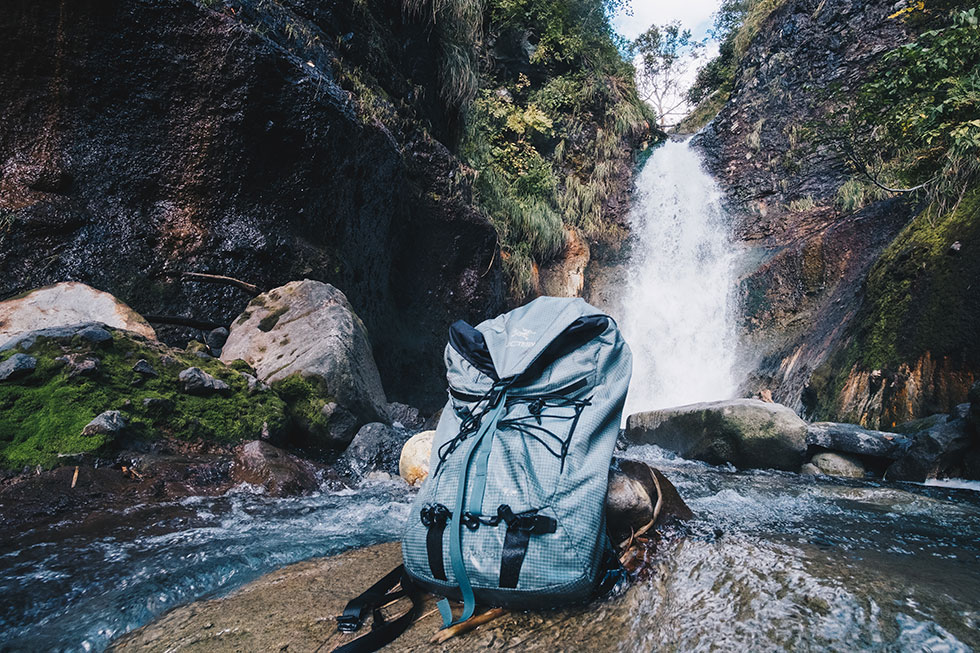
Specifications
- Name: Alpha AR 20
- Brand: Arc'teryx
- Format: Backpack
- Measurement:
- Capacity: 20L
- Weight:
- Zippers:
- Material: N315r Liquid Crystal Polymer
- Price
Who It Suits
This pack suits those in pursuit of an elegant “light and fast” solution to day climbs, doing away with extraneous pockets and features. It has been stripped down to only what is “essential” in the classic Arc’teryx style. They have given us a blank canvas with which to integrate into climbing setups. The climbers they have designed the pack for will be accustomed to the simplicity of summit packs. It feels surprisingly robust for its weight, especially when packed to a climb-ready state.
Who It Doesn’t
The AR 20 does not suit those looking for a pack where comfort is paramount. Although it features great shoulder straps, the bare-bones sternum strap and equally thin waist strap mean comfortable weight distribution was not high on the list of priorities. It gets away with slight “discomfort” because it is first and foremost a climbing pack and wasn’t designed for rucking long distances.
Design
Looks
Arc’teryx have made a climbing pack with no pretenses. The design of the AR 20 reflects its purpose as a specialized summitting tool for the discerning climber. In classic Arc’teryx fashion, it keeps a low profile, but it becomes obvious upon closer inspection that this is a pack with serious pedigree and high technical standards. The pack comes in two colorways: beacon, a bright safety orange and robotica, a light slate color.
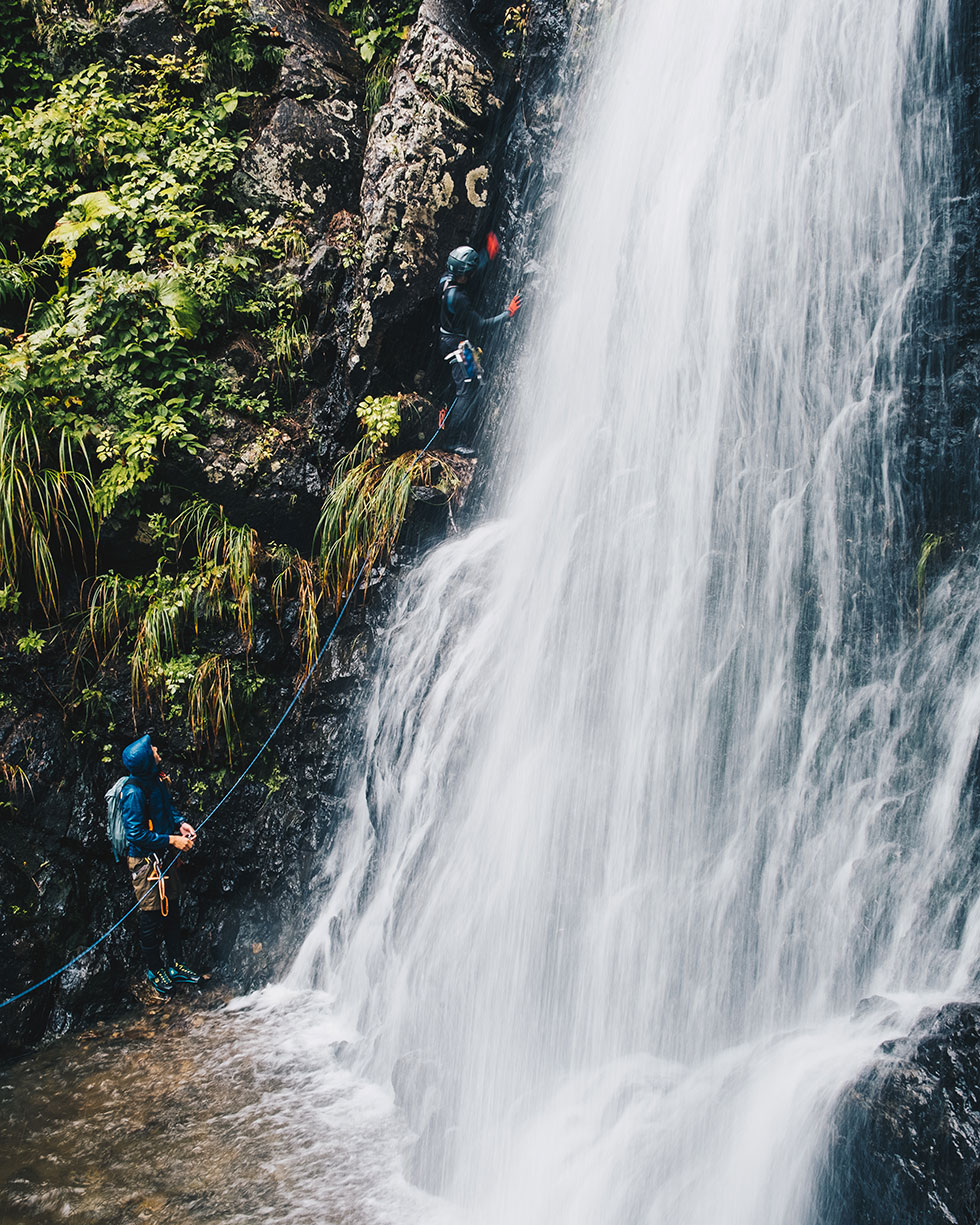
Hardware
The AR 20 is quite literally a sack with a brain flap covering the drawstring entrance into the main compartment, secured with a proprietary “androgynous” hook system, which I’ve found quite secure and easy to use. Workflow on a climb is dramatically improved with this hook system versus a metal tab hook that is utilized in many other climbing packs. This hook works by “grabbing” the loop, clicking in place, so to speak, from where you can cinch down the strap. The flap and hook also allows this closure system to keep the bag’s brain from unhooking when the pack is not full. This is often a problem on other climbing packs, where a half-filled bag will not offer enough tension to keep the hook locked in.
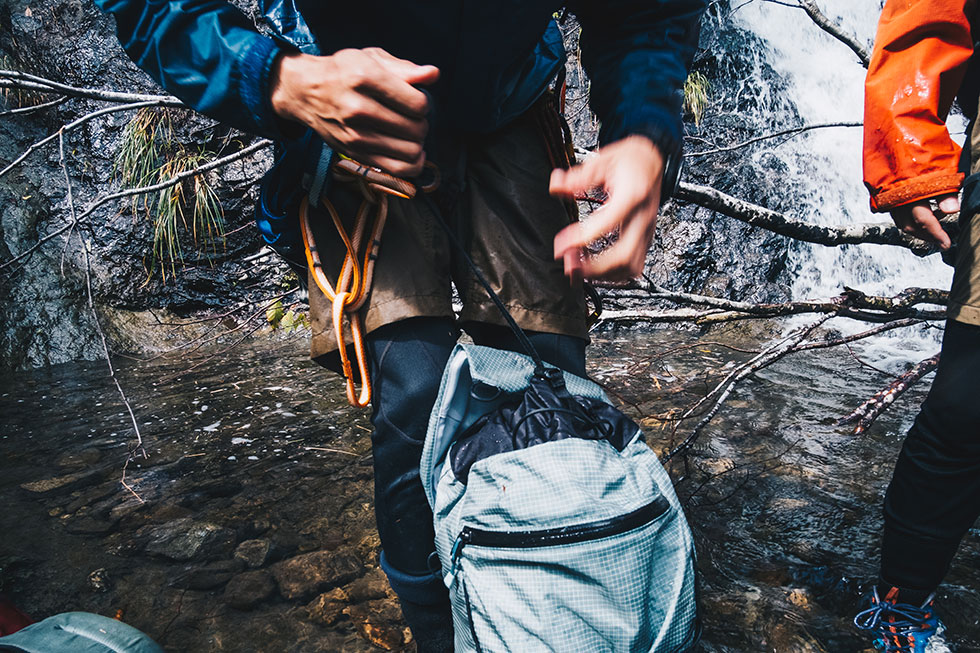
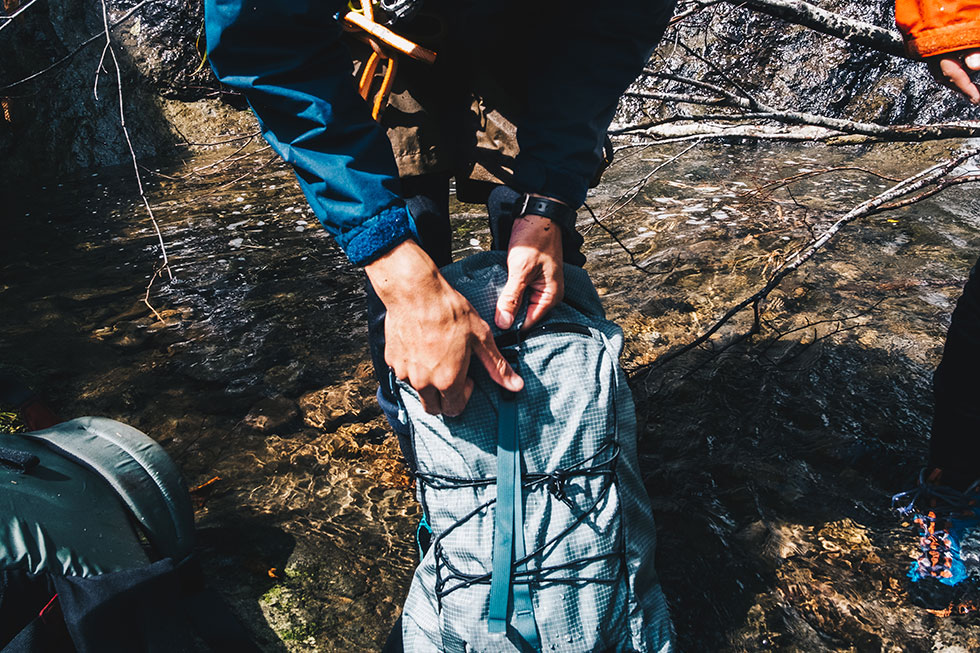
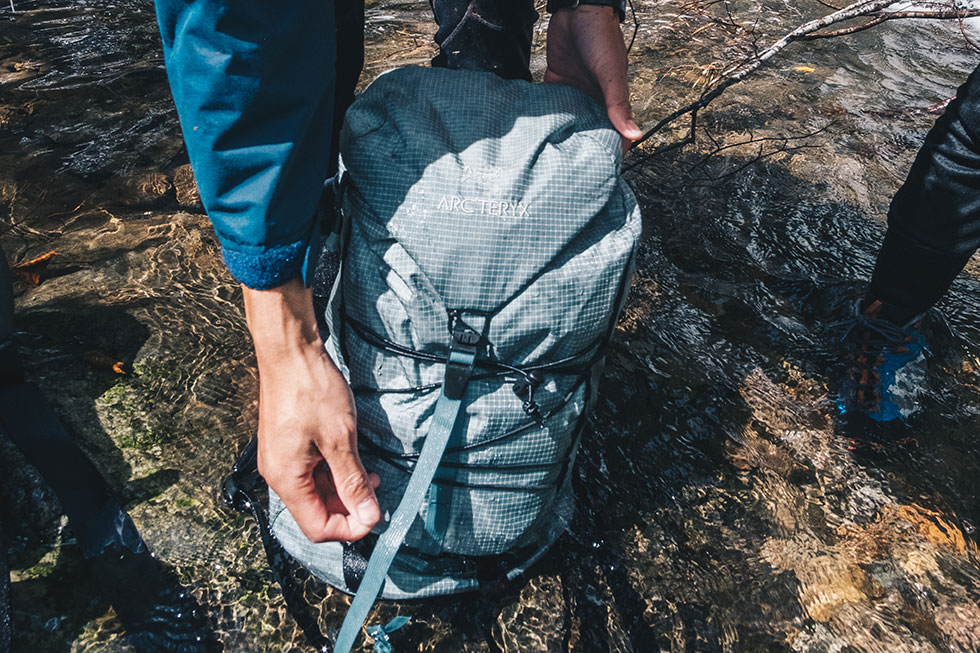
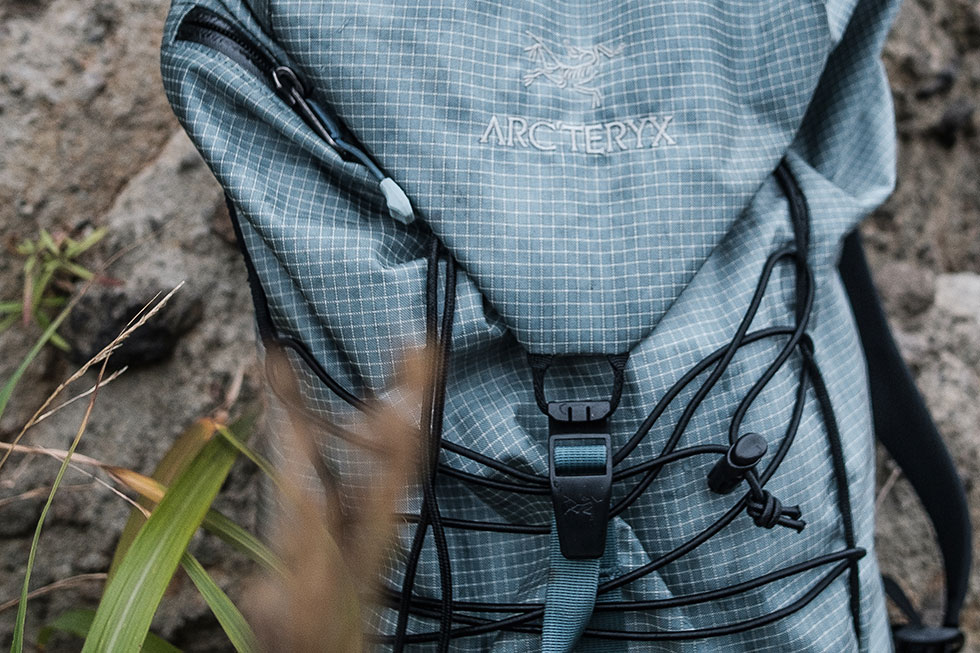
When climbing under the roar of waterfalls, having a safety whistle can be critical. Typically, packs will feature them on the sternum strap. The sample I received did not come with one, but it was easy to add my own whistle.
"The flap and hook also allows this closure system to keep the bag’s brain from unhooking when the pack is not full."
Materials
Arc’teryx have utilized a textile composed of a ripstop grid and LCP (Liquid Crystal Polymer) bonded with high tenacity nylon (N315r) as one of the strongest technical fabrics with a great strength to weight ratio. As a result, I found the pack incredibly abrasion-proof, having dragged it across rock for a season of sawanobori everywhere from freshwater gorges to saltwater climbs. The material is highly water-resistant, which I found to be good and bad. Because the AR 20 has a drawstring closure under a flap, it is not watertight like a dry bag, so water can enter through the top. The N315r fabric, coupled with the lack of drainage ports will mean water tends to stay in the pack. This should not be a problem for most users because it seems unique to sawanobori or anyone who will submerge their climbing pack underwater.
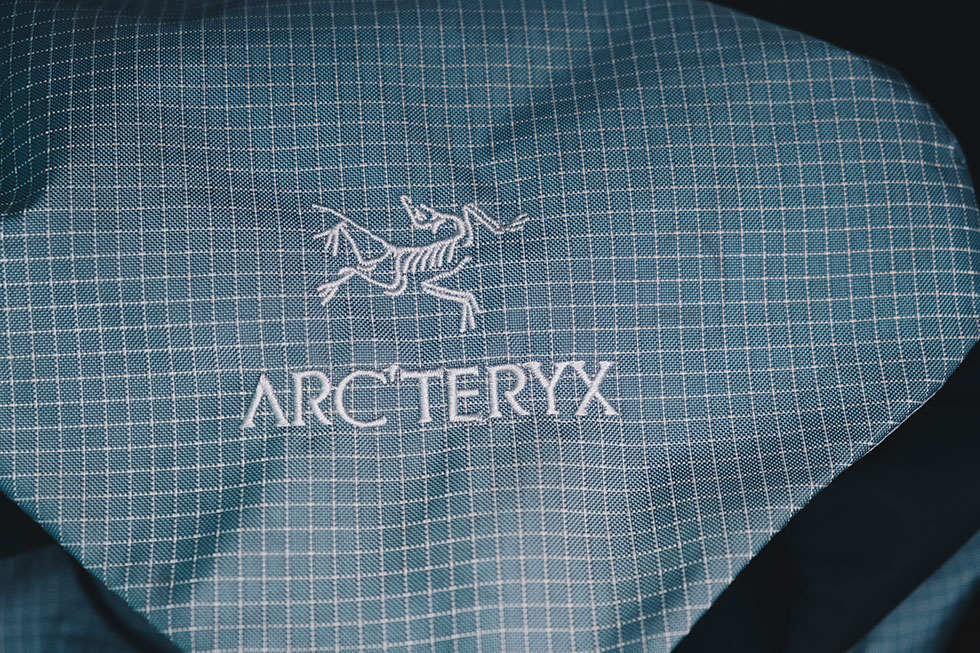
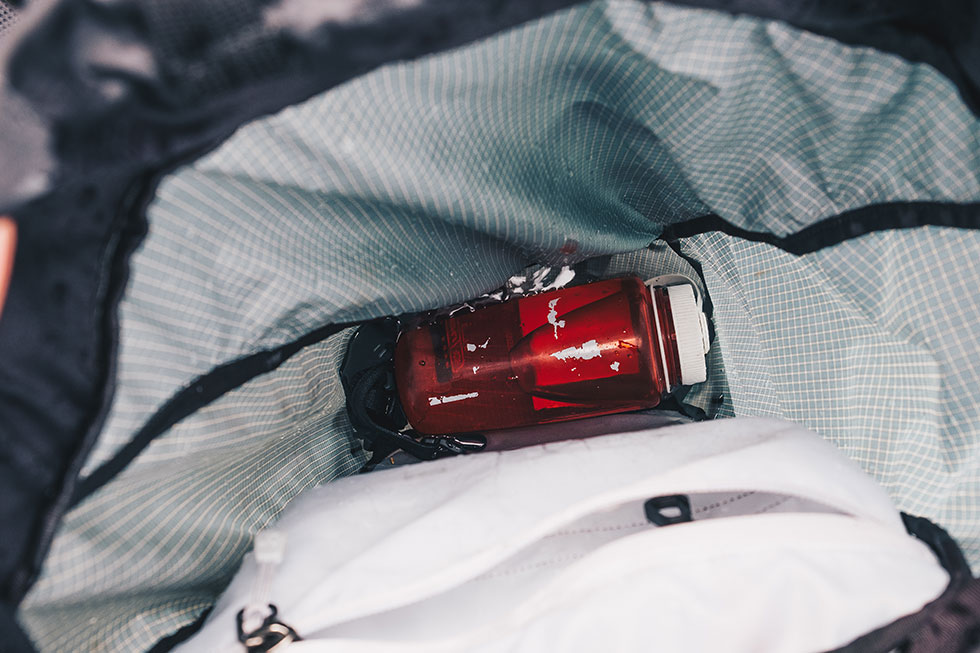
Features
Straps and workflow
One feature I found infinitely useful is that this pack can be used when nearly empty and also “expanded” past its 20-liter volume by utilizing the space under the brain as a storage space for rope, jackets or extra layers. The strap used to tie down the pack has quite a bit of “extra” length, providing more than enough slack for rope. Climbing packs in this genre tend to use a hook system that can easily come undone when the pack is too empty for the hook’s strap to create any tension.
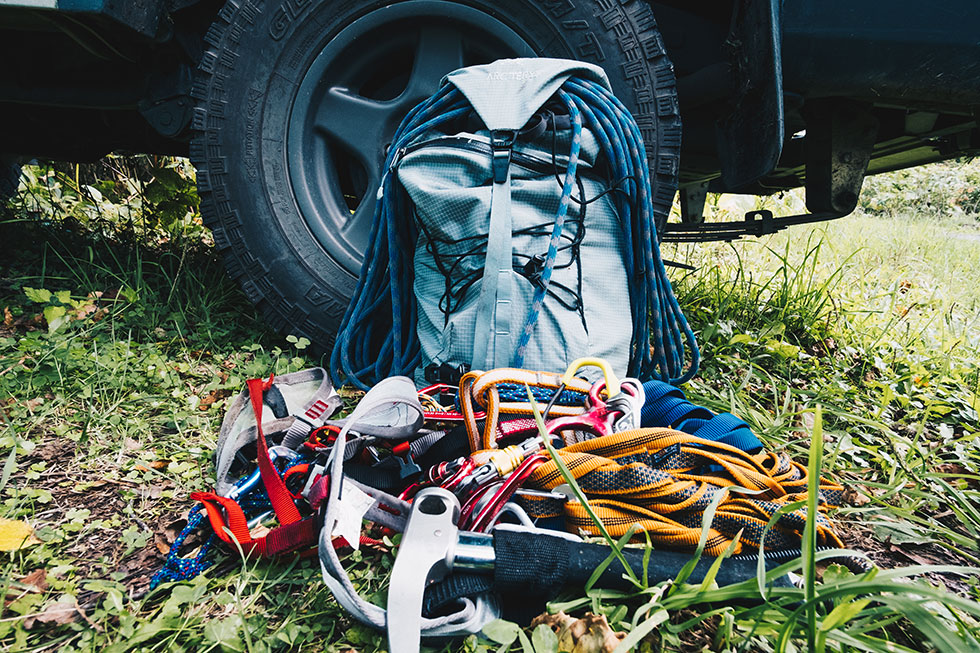
The waist and chest straps are minimal, doing a good enough job of dispersing weight. They are quite thin and will dig when heavily loaded, but on a climb with many other chances to feel uncomfortable, perfect weight displacement just isn’t a priority.
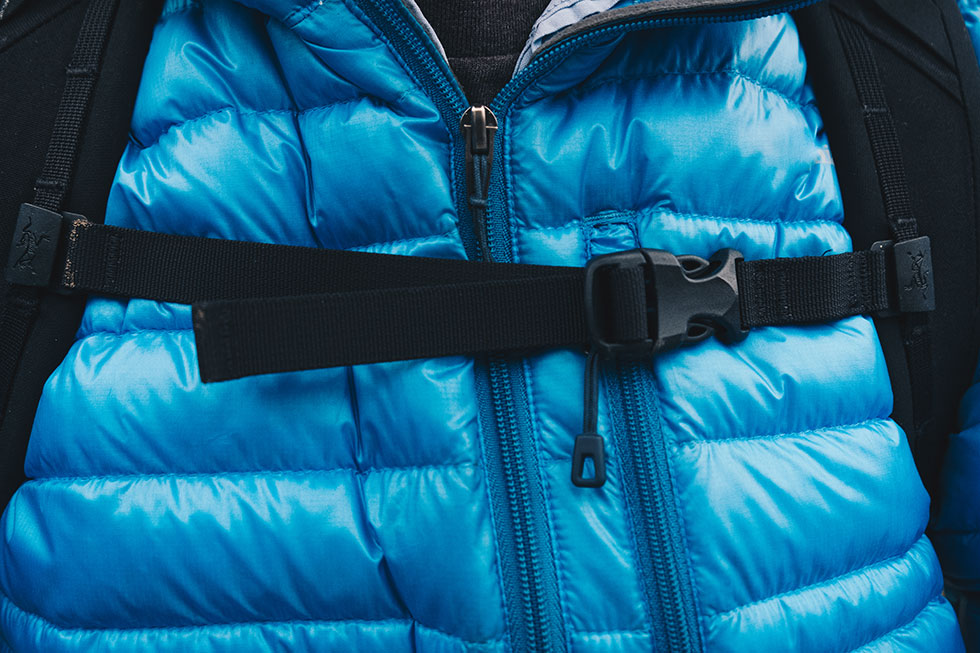
"Although it features great shoulder straps, the bare-bones sternum strap and equally thin waist strap mean comfortable weight distribution was not high on the list of priorities."
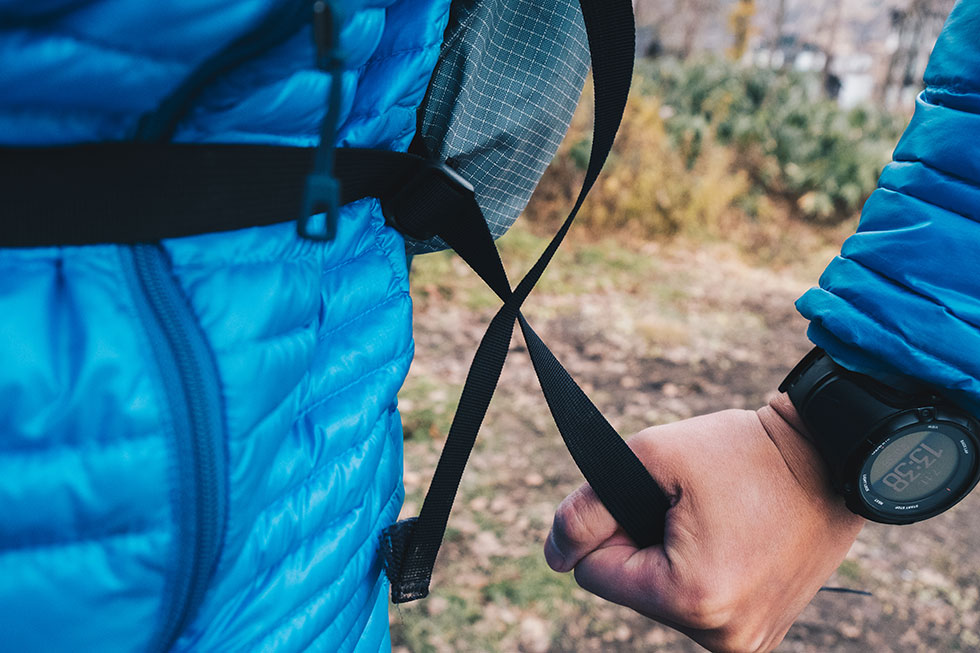
The grab handles flanking the drawstring entrance are perfect if you are charging through a mission without the brain cinched down. I often climb this way for ease of access to my camera (in a dry bag). Keeping the handles inside the brain as opposed to outside makes sense to prevent tangling with a climbing helmet or branches. I had to slightly adjust my workflow on a climb to grab the shoulder straps instead of the grab handles, but this was a minor workaround.
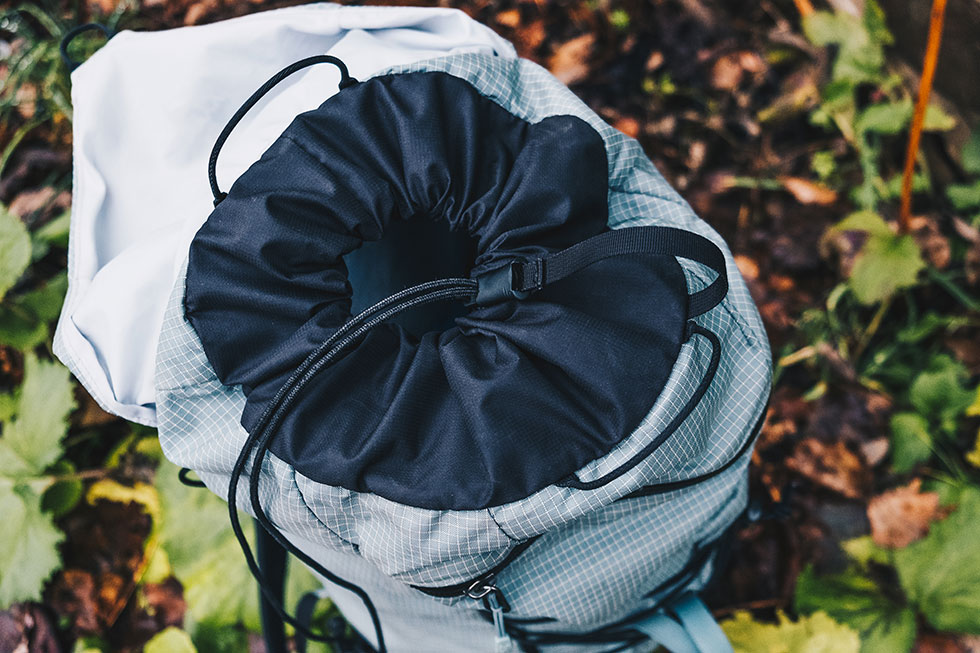
Performance
Space and Access
As a climbing pack, the AR 20 is about as minimalist as they come. Comprising of a main compartment, a front pocket, and a zippered security pocket under the drawstring closure and lid flap, there is not much in place for organization and separation of gear. This is a pack designed for a light and fast approach to climbing, highlighted by the materials used and minimalist straps. It aims to lighten the load as much as possible without sacrificing strength, and in doing so, Arc’teryx have deemed it unnecessary to have more than three distinct pockets.
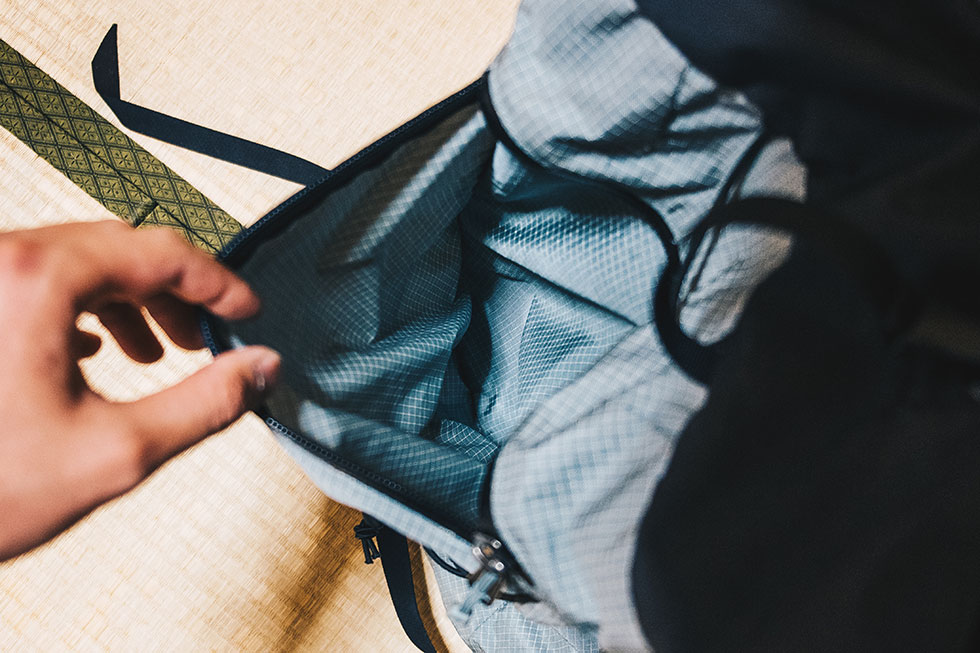
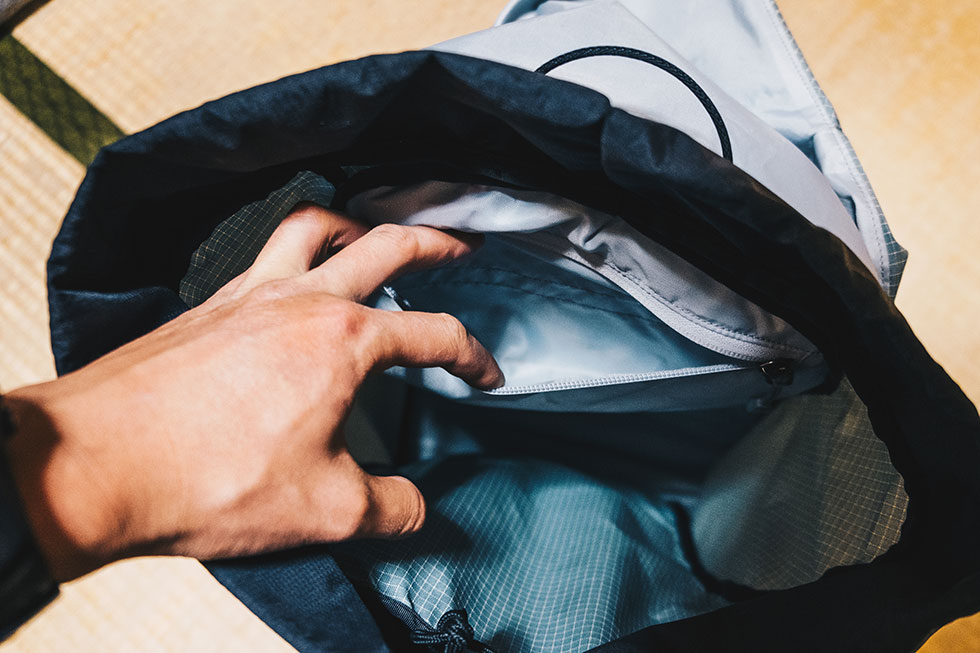
The AR 20 features two attachment loops and custom webbing daisy chains on the outside of the pack. Compression straps are a great place to quickly stash items. I found it perfect to throw a soaked layer under the straps to dry off on the hike down after getting out of the water on a sawanobori mission.
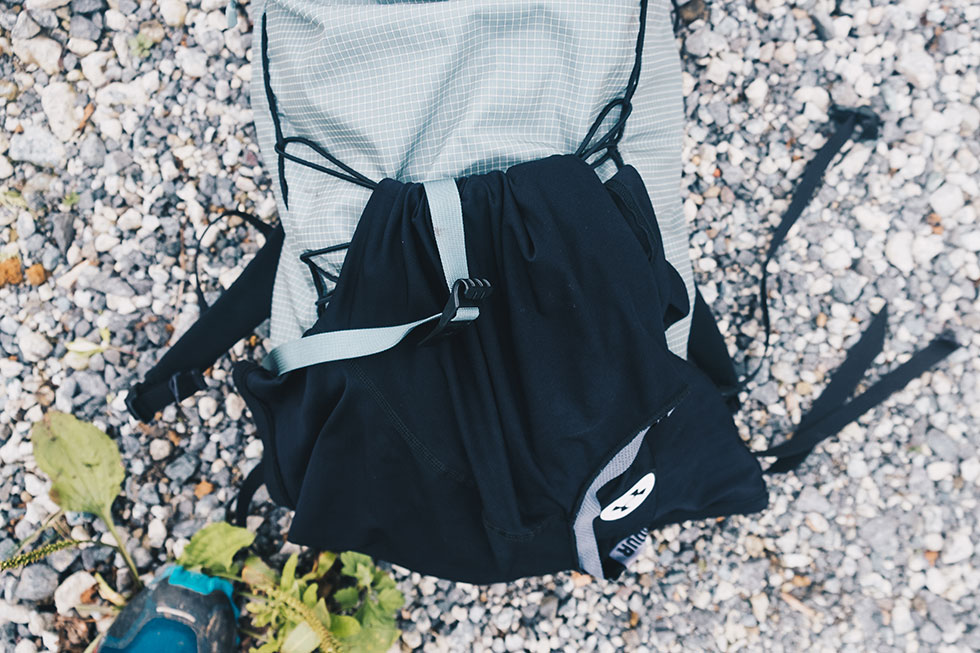
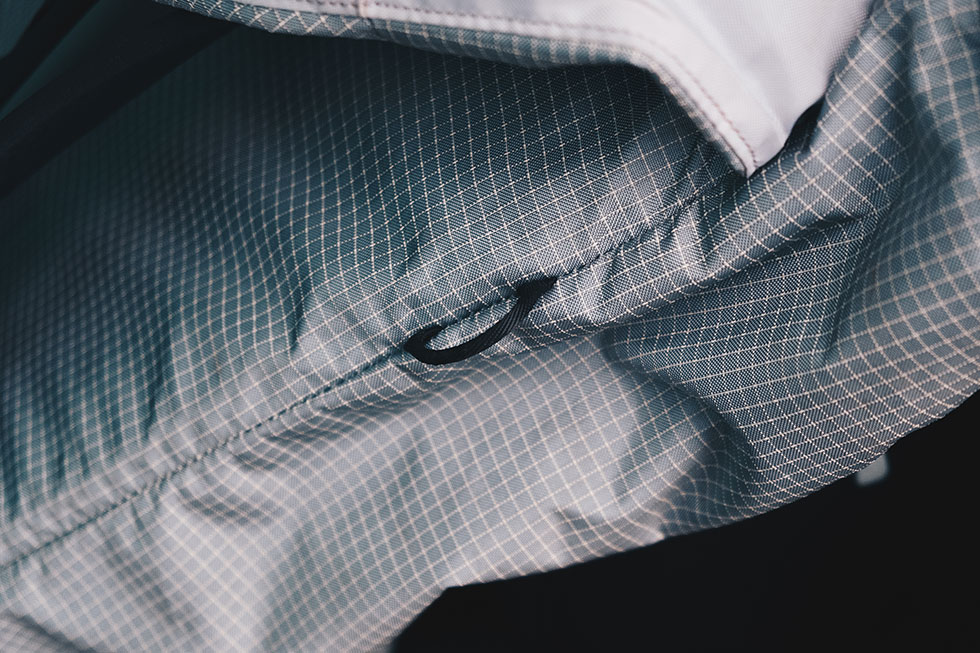
Comfort
As with the Alpha SK 32 ski pack, the Alpha AR 20 brings in Arc’teryx’s expertise in the art of climbing harnesses. It molds quite comfortably in most situations as long as you are aware of packing awkwardly shaped items away from the back. The back panel, hidden behind the security pocket, is removable, allowing climbers to really compress the AR 20 if needed. For most situations, even while trail running or rock hopping, this pack does a perfect job of staying close to the body for easy direction changes.
"It aims to lighten the load as much as possible without sacrificing strength, and in doing so, Arc’teryx have deemed it unnecessary to have more than three distinct pockets."
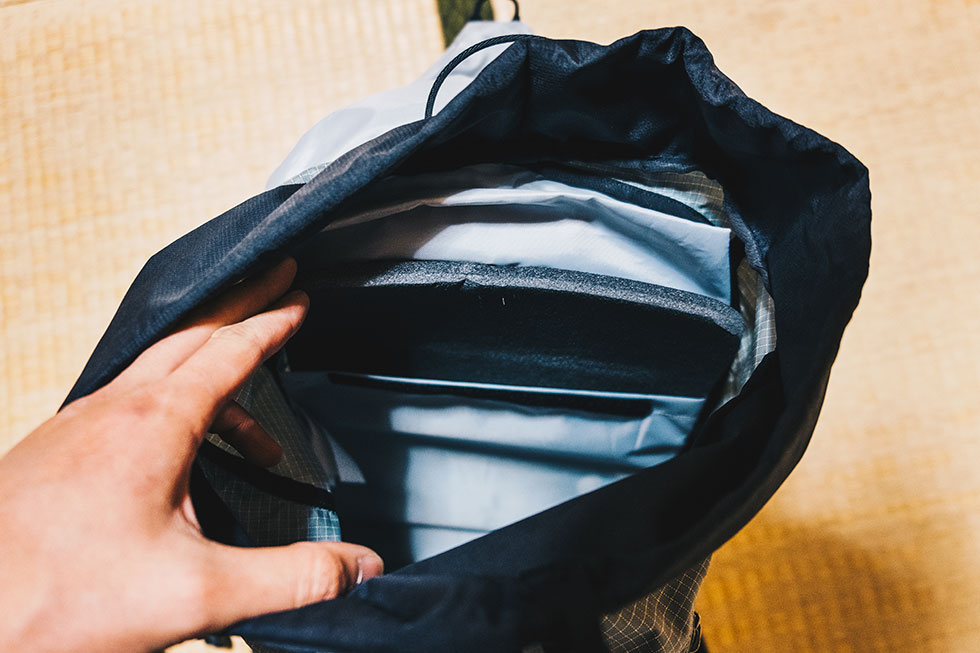
Durability/Weatherability
The AR 20, forged for “ice climbing and multi-day alpine climbs,” held up perfectly against continuous submersion for hours at a time into salt water, fresh water, and abrasions on rock. Having dragged it through sawanobori missions in the short Hokkaido green season, the AR 20 shows no signs of slowing down.
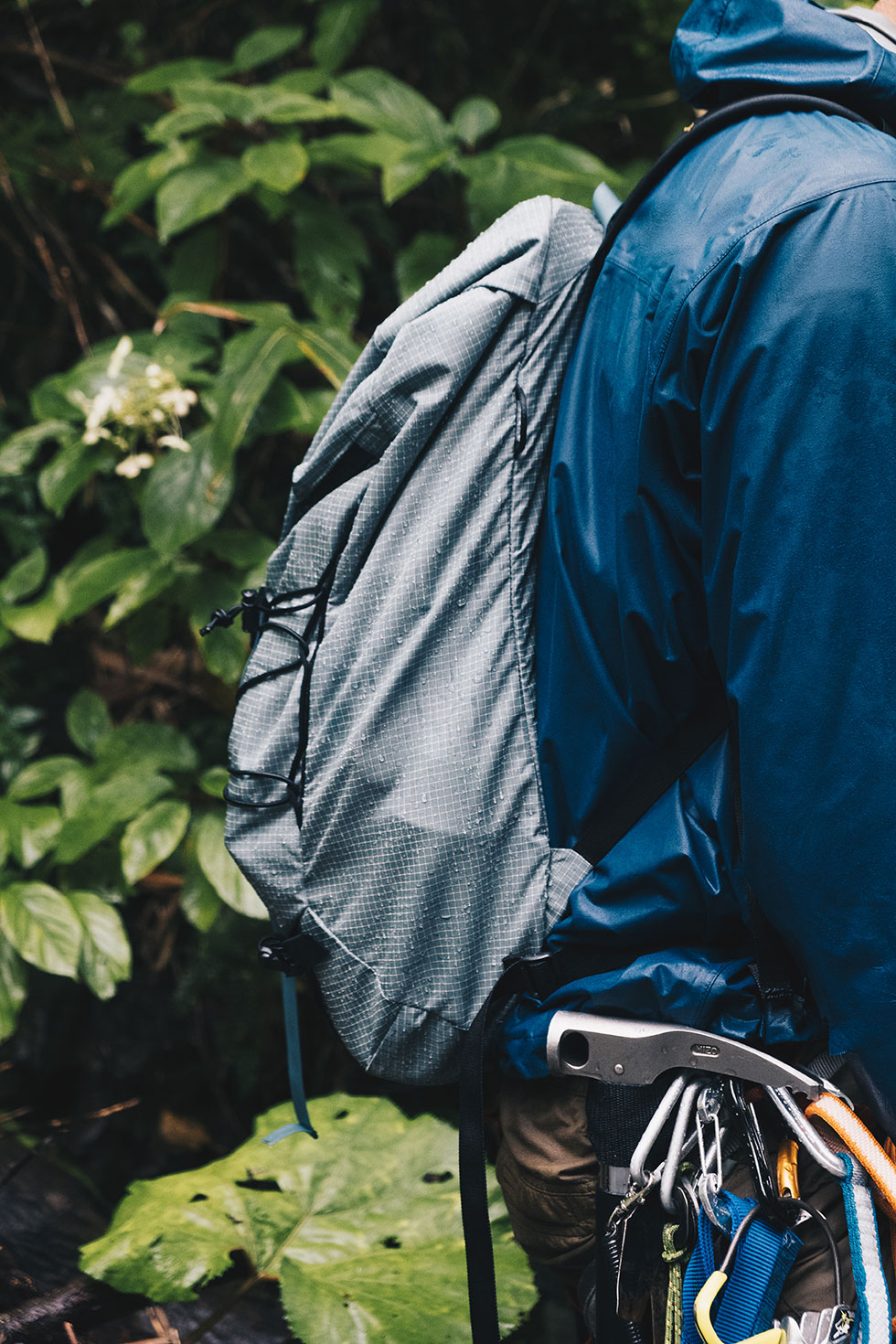
Alternatives to Consider
A few Arc'teryx alternatives to consider include the Arc’teryx Cierzo series and Arc’teryx Alpha FL series. Also check out the Black Diamond Blitz series, Blue Ice Warthog 28, Hyperlite Summit Pack, and the Mammut Trion Light 28.
The Good
- Highly abrasion resistant
- Extremely lightweight
- Workflow optimized for climbing
- Removable back panel increases compressibility
Not So Good
- Retains water, not a problem for climbing in “dry” conditions
- Lacks safety whistle
- Weight distribution struggles under load
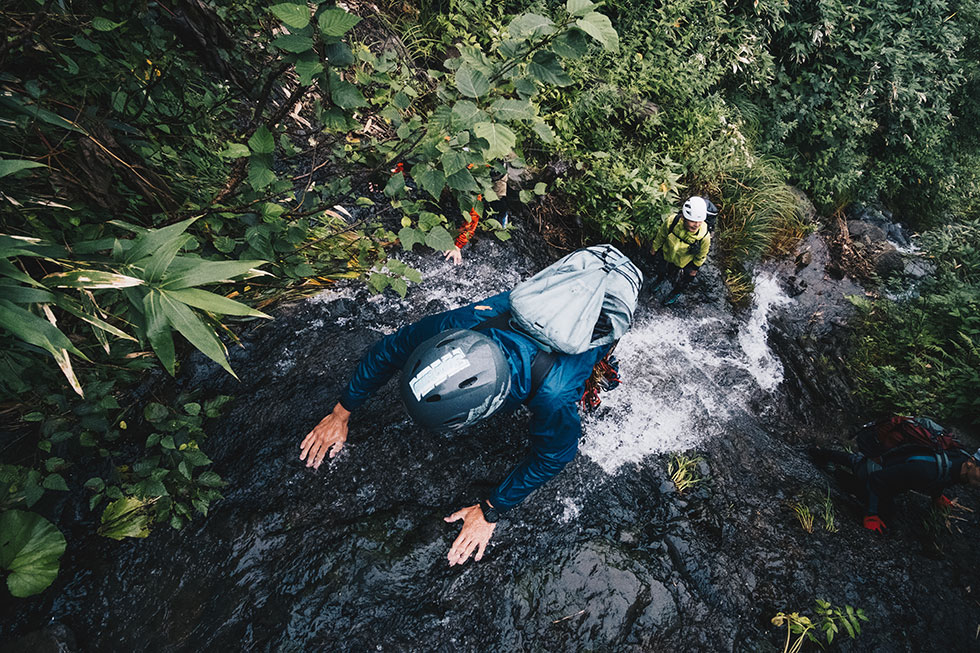
Verdict
The AR 20, thick with Arc’teryx DNA, is an evolution in the “light and fast” climbing movement, balancing toughness with lightness in its extensive use of N315r LCP. It represents the first of many, leading the charge for the next generation of Arc’teryx packs to benefit from this revolutionary combination of nylon and ripstop grid. For those in search of an ultralight summit pack, there are many out there, but for those who want to benefit from the cutting edge of pack development, Arc’teryx provides a great alternative of a minimalist pack, perfect at accompanying climbers searching for the elusive water source or peak. The AR 20 has prevailed through the rigours of sawanobori, left with nothing more than a bit of patina, signs of missions past and promises of charging through future missions.
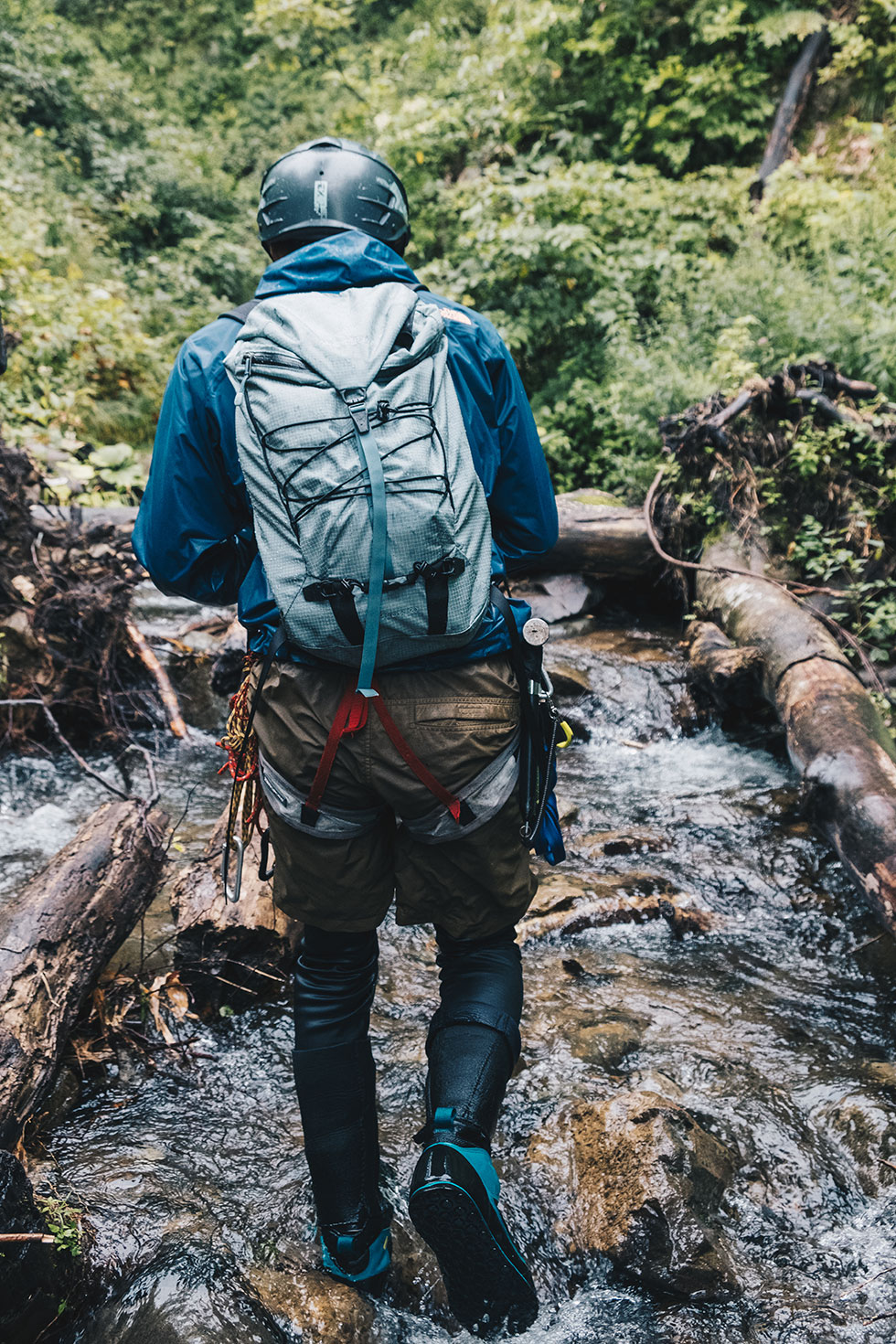
Liked the above article? You might enjoy these too:
Arc’teryx Alpha SK 32 Pack: Exclusive Review
Arc’teryx LEAF DryPack 25: Road Test
A Beginner’s Guide to Climbing Packs
Specialist Carry :: Ice Climber





 Carry Awards
Carry Awards Insights
Insights Liking
Liking Projects
Projects Interviews
Interviews